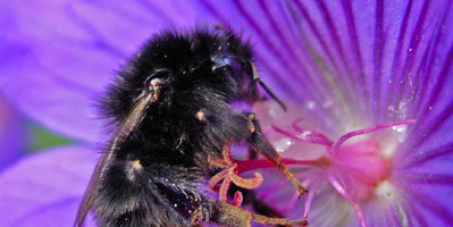×

BAN ALL BUMBLEBEE IMPORTS
Graham W.
started this petition to
The European Commission; UK Government; EU Member States
Most UK Bumblebee species are in steep decline; two species have gone extinct in recent years.
Recent research revealed that 50,000 artificially-bred bumblebee colonies are being commercially imported into the UK each year. A recent report found that 77% of these alien-imported bees carried dangerous parasites as well as: viruses, bacteria and fungal diseases. More than 1,000,000 factory bred colonies are being exported world-wide, spreading bee-diseases and pathogens to every country on the plant. This is a recipe for extinction of native bumblebees around the world.
Recent research revealed that 50,000 artificially-bred bumblebee colonies are being commercially imported into the UK each year. A recent report found that 77% of these alien-imported bees carried dangerous parasites as well as: viruses, bacteria and fungal diseases. More than 1,000,000 factory bred colonies are being exported world-wide, spreading bee-diseases and pathogens to every country on the plant. This is a recipe for extinction of native bumblebees around the world.
These alien bumblebee colonies are largely being imported by Syngenta - a leading manufacturer of neonicotinoid pesticides, which many scientific studies have concluded are killing bumblebees in uncountable numbers.
BACKGROUND:
http://onlinelibrary.wiley.com/doi/10.1111/1365-2664.12134/abstract
Article first published online: 18 JUL 2013
Summary
Over a million commercially produced bumblebee colonies are imported annually on a global scale for the pollination of greenhouse crops. After importation, they interact with other pollinators, with an associated risk of any parasites they carry infecting and harming native bees. National and supranational regulations are designed to prevent this, and commercially produced bumblebee colonies are accordingly now often sold and imported as being parasite-free. Here, we used molecular methods to examine the occurrence of parasites in bumblebee colonies that were commercially produced in 2011 and 2012 by three producers. We then used controlled experiments to determine whether any parasites present were infectious. We found that 77% of the commercially produced bumblebee colonies from the three producers, which were imported on the basis of being free of parasites, in fact carried microbial parasites, with five different parasites being detected across the total sample of bumblebees and a further three in the pollen supplied with the colonies as food. Our controlled experiments demonstrated that at least three of these parasites were infectious to bumblebees with significant negative effects on their health . Furthermore, we also found that at least four of the parasites carried by commercially produced bumblebees were infectious to honeybees, indicating that they pose a risk to other pollinators as well. Synthesis and applications . The results demonstrate that commercially produced bumblebee colonies carry multiple, infectious parasites that pose a significant risk to other native and managed pollinators. More effective disease detection and management strategies are urgently needed to reduce the pathogen spillover threat from commercially produced bumblebees.View Full Article with Supporting Information (HTML) Get PDF (519K)
Posted
(Updated )
Report this as inappropriate
There was an error when submitting your files and/or report.